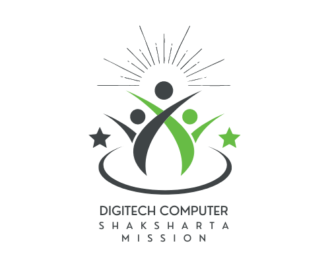Curriculum: Computer education centers offer a variety of courses and programs covering a wide range of topics within the field of computer science and information technology. This may include programming languages, software development, database management, networking, cybersecurity, web development, and more.
Hands-on Training: Practical, hands-on training is a hallmark of computer education centers. Students often engage in real-world projects, labs, and exercises to apply theoretical concepts and develop practical skills.
Certifications: Many computer education centers provide certification programs that allow students to obtain recognized credentials in specific technology areas. These certifications can enhance job prospects and validate the skills acquired during the training.
Instructors: Qualified and experienced instructors, often with industry expertise, lead the courses and provide guidance to students. These instructors play a crucial role in ensuring the quality of education and facilitating a positive learning experience.
Facilities and Resources: Computer education centers are equipped with modern facilities, computer labs, and resources to support effective learning. Access to up-to-date hardware and software is essential for hands-on training and skill development.
Flexible Learning Options: Many computer education centers offer flexible learning options to accommodate the diverse needs of students. This may include full-time and part-time courses, evening classes, online learning, and customized training programs for individuals or businesses.
Career Services: Some centers provide career services such as job placement assistance, resume building, and career counseling to help students transition from education to employment in the technology sector.
Community Engagement: Computer education centers often engage with the local community, industry partners, and professional organizations. This collaboration can lead to internship opportunities, guest lectures, and networking events, enhancing students’ exposure to the broader tech ecosystem.
Continuous Learning and Updates: Given the rapid evolution of technology, computer education centers prioritize staying up-to-date with the latest industry trends. They regularly update their curriculum and training materials to reflect current technologies and best practices.
Mission and Philosophy: Each computer education center may have a unique mission and educational philosophy that guides its approach to teaching and learning. This may include values such as inclusivity, excellence, innovation, and a commitment to lifelong learning.

Everyday at the Digitech Computer Shaksharta Mission is like a blessing with the active students and talented staff members around.
Sukumar Roy — Headmaster
Digitech Computer Shaksharta Mission at a Glance
Mission Statement
The mission of Digitech Computer Shaksharta Mission is to empower individuals with the knowledge and skills necessary to thrive in an increasingly digital world. We are committed to providing high-quality, accessible computer education that fosters creativity, critical thinking, and problem-solving. Our goal is to bridge the digital divide by offering comprehensive and practical training programs for students of all ages and backgrounds. Through innovative teaching methods and state-of-the-art resources, we strive to cultivate a community of lifelong learners who are well-prepared to excel in technology-driven fields and contribute to the global digital landscape.”
It’s important to note that each computer education center may have a unique mission tailored to its specific vision and objectives. For the most accurate information, you should refer to the official documentation or website of the particular computer education center you are interested in.
Our Core Values
Excellence: Striving for high standards of academic and instructional quality to ensure students receive the best possible education.
Innovation: Embracing and promoting innovative teaching methods, technologies, and curriculum to stay current with industry trends and advancements.
Inclusivity: Creating an inclusive and diverse learning environment that welcomes individuals from various backgrounds, regardless of age, gender, ethnicity, or socio-economic status.
Empowerment: Empowering students with the knowledge and skills needed to succeed in the digital age and contribute meaningfully to society.
Flexibility: Adapting to the evolving needs of students and the technology landscape, offering flexible learning options to accommodate diverse learning styles and schedules.
Community Engagement: Engaging with the local community, industry partners, and stakeholders to establish meaningful connections and provide real-world opportunities for students.
Ethical Conduct: Promoting ethical behavior, integrity, and responsible use of technology among students, emphasizing the importance of ethical considerations in the digital realm.
Lifelong Learning: Instilling a passion for lifelong learning, encouraging students to continue acquiring new skills and staying current with technological advancements throughout their careers.
Student-Centered Approach: Prioritizing the needs and well-being of students, fostering a supportive learning environment, and providing resources for personal and academic growth.
Global Perspective: Cultivating a global perspective by exposing students to diverse cultures, global issues, and international perspectives within the realm of technology
Our Philosophy
At Digitech Computer shaksharta Mission, we believe in harnessing the power of technology to empower individuals and communities. Our philosophy is built on the following core principles:
Access to Technology for All: We are committed to providing equitable access to technology education for people of all ages, backgrounds, and abilities. We believe that everyone should have the opportunity to develop essential digital skills and thrive in an increasingly technology-driven world.
Hands-On and Applied Learning: We embrace a hands-on and applied learning approach, recognizing that practical experience is crucial for developing proficiency in computer-related disciplines. Our programs emphasize real-world projects and industry-relevant experiences to prepare students for success in the workforce.
Innovation and Adaptability: In the dynamic field of technology, we value innovation and adaptability. Our curriculum and teaching methods are designed to stay current with the latest industry trends, fostering a culture of continuous learning and technological agility.
Collaborative Learning Community: We believe in the power of collaboration and community. Our education center serves as a hub where students, instructors, industry experts, and the broader community come together to share knowledge, ideas, and experiences. We foster a supportive and collaborative learning environment.
Ethical Use of Technology: We emphasize the ethical use of technology and responsible digital citizenship. Our programs instill a strong sense of ethics, integrity, and social responsibility in our students, ensuring that they use their technological skills for the greater good.
Individualized Learning Paths: Recognizing the diverse backgrounds and learning styles of our students, we embrace individualized learning paths. Our flexible programs cater to the unique needs of each learner, allowing them to progress at their own pace and focus on areas that align with their interests and career goals.
Global Perspective: In an interconnected world, we encourage a global perspective. Our programs incorporate international perspectives, fostering a deep understanding of global issues and diverse cultural influences within the realm of technology.
Lifelong Learning: We believe in the importance of lifelong learning. Our commitment extends beyond initial education to support ongoing skill development and professional growth throughout our students’ careers.
